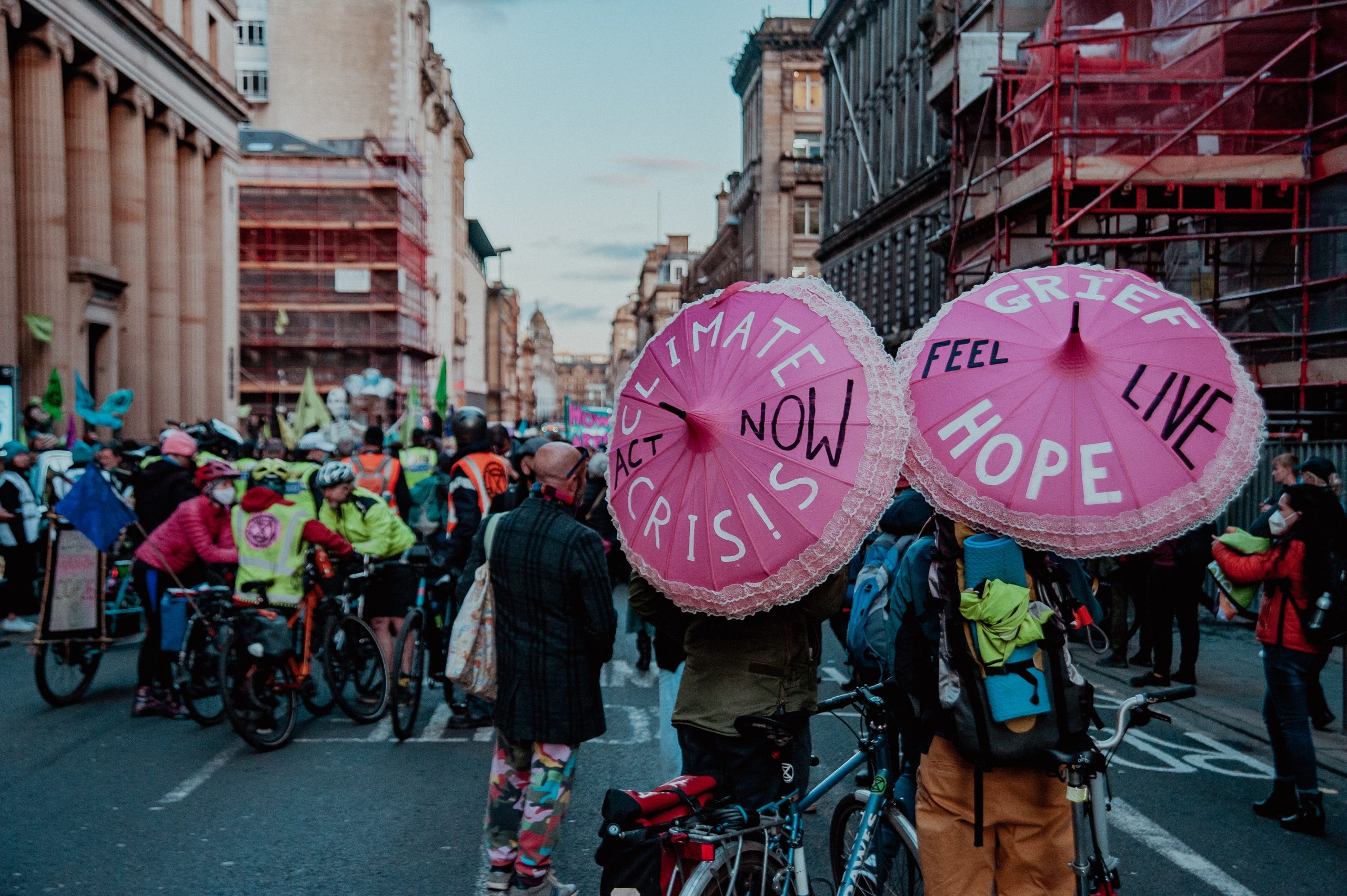Now more than ever, we are seeing climate legislation and policy have a greater impact on individual livelihoods and organizational operations. This comes after COP26, the global conference which outlined significant issues and delivered vital national commitments, in order to achieve a global net-zero target. Thus, it is vital that organisations and individuals collaborate together to address key issues and devise workable solutions.
This year’s King’s Sustainability Month, which follows COP26, is one such attempt to contribute to climate action. An annual collaboration between KCL and KCLSU, King’s Sustainability Month offers student and staff opportunities to learn more about sustainability and related topics. It also allows cooperation with others across King’s, to take action on the climate crisis. But has the lineup of events under King’s Sustainability Month addressed the climate crisis’s most urgent issues? Has it adequately prepared participants to anticipate changes of the future?
At first glance, there was a varied event lineup which seemingly addressed every topic related to sustainability, reflecting the multifaceted nature of climate justice. Even evidently disparate issues such as migrant rights and gender equality are given due weight with events exclusive to these topics (Gender Inequality in Korea with Squid Game, Against Gender Violence: Self Defense with Taekwondo). In particular, one talk on climate refugees (The Climate Crisis and Refugees) drew attention to the worsening refugee crisis, where thousands of migrants are turned away at UK borders despite the ongoing natural disasters in their home countries. The speakers linked this cause to climate justice, making the case that environmental refugees should gain recognition in law and by the government such that they may claim asylum, something they are currently not allowed to do. This was an insightful take on climate action, effectively promoting the urgency of an issue that has been overlooked at COP26 and other international forums, and that requires significant legal and political advocacy.
Sustainability Month coinciding with Brazil Week provided for the opportunity to host multiple events on the climate crisis in the Amazon, which faces record deforestation levels (Climate, environment and security in the Amazon rainforest, Amazon deforestation in the context of international relations of Brazil). As a key COP26 issue, multiple targets have been set to clamp down on illegal deforestation, such as requiring large companies to ensure that they use illegal deforestation-free commodities (palm oil, beef, soy and coffee) through the newly-implemented Environmental Act 2021.
Many policy developments following COP26 have focused on renewable energy and sustainable finance, key instruments to help us move economies and industries towards a net-zero future. In particular, energy is a crucial topic as the UK is facing a worsening energy crisis and skyrocketing record-high bills. Yet, each issue only had one event which explicitly zeroed in on this issue (Fair Energy Forum, Mind the (Finance) Gap: Mitigation & Adaptation Finance). Arguably, there could have been more events dedicated to such vital, crisis-level issues.
Circularity is also a topic that was big on the COP26 agenda, as moving towards a circular economy is an essential step to helping us reduce global emissions. Research from the Ellen MacArthur Foundation finds that our transition to renewable energy “can only address 55% of emissions”, and that the remaining 45% of emissions arise from the production and waste of “ cars, clothes, food, and other products we use every day.” A circular economy model would eliminate the concept of waste altogether, keeping products in a closed-loop system for as long as possible, through recycling, repair, reuse or other means. This model is one which consumers potentially have a stake in, but is not well-known to many. Though there was a distinct lack of related events at King’s Sustainability Month, it would have been the perfect opportunity to promote this concept. Hands-on experiences such as sewing or e-repair workshops could have been incorporated into the programme, exposing participants to the cause and educating them about it. Much more work needs to be done to shift consumers away from linear take-make-waste models, towards circular and greener models which encourage reuse.
Greenwashing was another topic which failed to be highlighted. With consumers increasingly pushed towards shopping for a greener lifestyle and enticed by companies with green branding, it is essential for them to develop knowledge on how to avoid products or service with false claims. King’s Sustainability Month could have included an expert-sharing session on tips and knowledge on how consumers could avoid being greenwashed.
Yet another overlooked cause was indigenous rights, which are arguably, absolutely central to climate dialogue. Indigenous people share a close relationship with the land and have a deep historical and spiritual understanding of it. In many ways, they are best placed to craft solutions to the climate crisis. When holding a dialogue on climate change, it should be important to recognise indigenous rights as they are at the forefront of climate resilience. Unfortunately, these communities are often ignored by governments in favour of solutions powered by capital and industry. They have also been subject to discrimination across history, and their rights are not well-protected by legislation. There was a missed opportunity to highlight this essential cause through an event exclusive to the cause, within the programme line-up.
To conclude: has King’s Sustainability Month done enough to achieve real-world impact? Not quite, but it would be a start. The explicit focus on getting participants to #TakeAction is definitely commendable. From learning about meat-free diets to developing effective strategies for climate education, participants were equipped with the knowledge and skills to take tangible steps towards real advocacy. But while individual action is important, more can be done by explicitly addressing policies and laws that participants can collectively influence, and will have far-reaching impacts on our future society and economy. Audiences interested in events with a policy-specific angle could also consider the Environmental Conference held by the Environmental Law and Regulations Society, or the London Sustainability Summit hosted by European Horizons.
This article has been contributed the KCL Environmental Law and Regulation Society. The society is dedicated to providing a platform for students interested in environmental laws, regulations, and their impacts on businesses, firms and the greater public. Follow them on @kclelrs (Instagram) and their website, https://www.kclelrs.com.






0 Comments